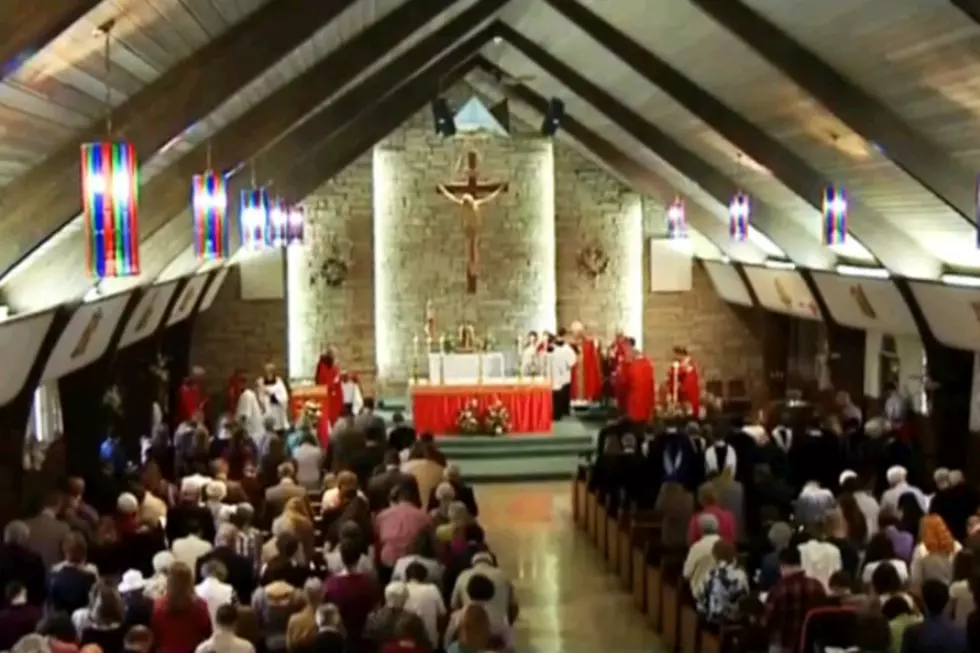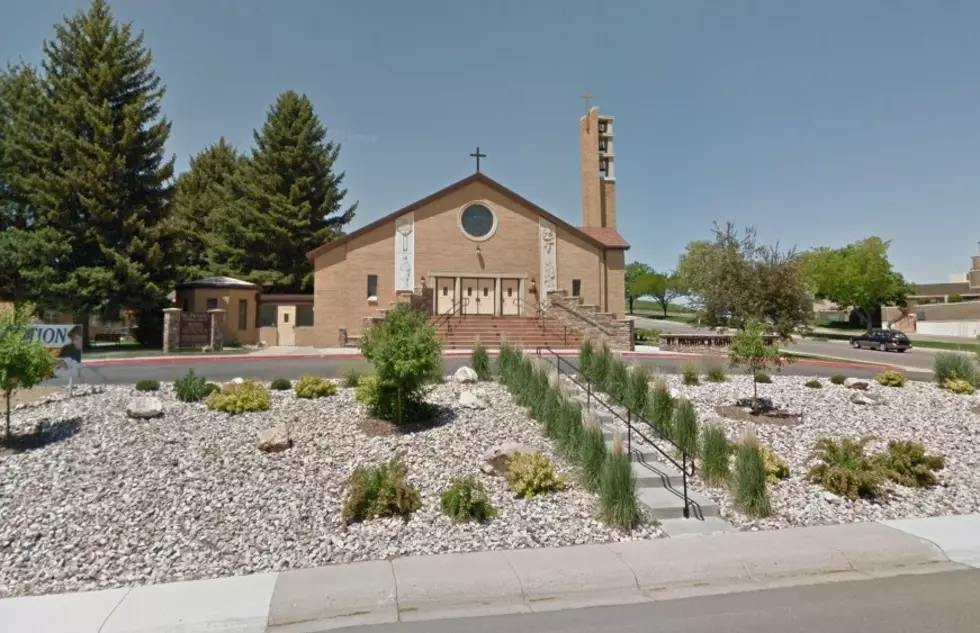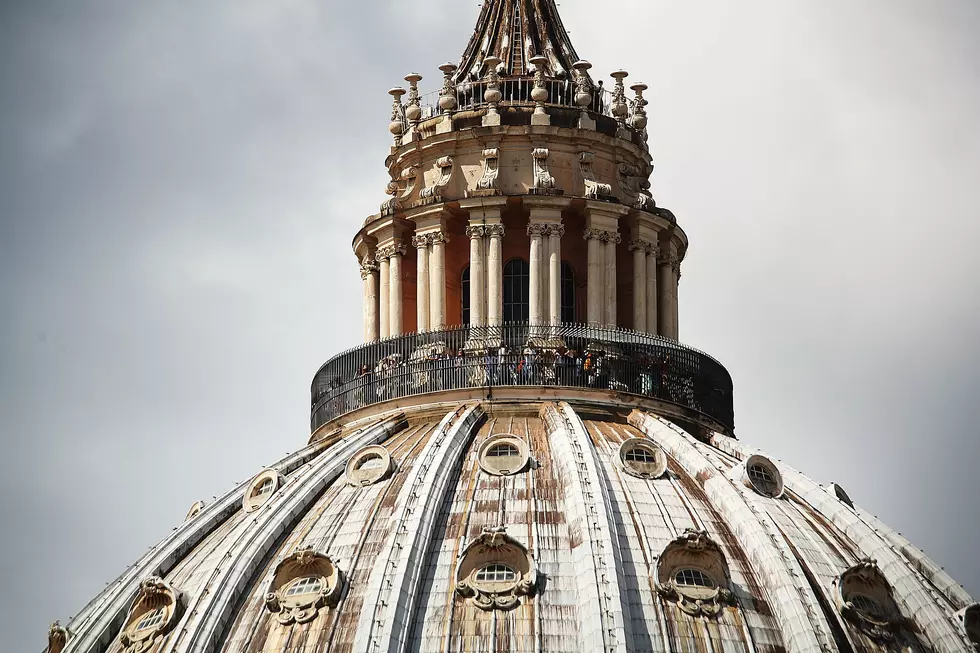
Martin Luther’s Reformation Affects You Whether You Know It Or Not
This is more important than Halloween.
Five hundred years ago Tuesday, a German monk named Martin Luther published a document with a bunch of questions about the Roman Catholic Church.
What Luther did influenced where you go to church.
What he did, coupled with the newfangled printing press, enhanced your ability to read the Bible in your own language.
And the Reformation continues to affect how you think about personal freedom, liberty and authority.
Luther wasn't the first to question the Catholic Church, but his document known as the "95 Theses" successfully launched the movement known as the Reformation and a split from the Catholic Church, and led to the formation of many Protestant denominations and congregations not affiliated with anything.
"It's the story of a Catholic monk who was dissatisfied with the way the church was operating in his day and wanted to start a conversation," said Bishop Jim Gonia of the Rocky Mountain Synod of the Evangelical Lutheran Church in America. The Synod includes churches in Wyoming.
"That conversation ended up taking on a life of its own to the point where Martin Luther was excommunicated," Gonia said.
In previous centuries others including Englishman John Wycliffe and Czech Jan Hus criticized what they believed were wrong teachings of the church. They also translated the Bible into their own languages. Some of those critics and their followers were persecuted and killed for their beliefs.
But Luther's scholarship coincided the revolutionary technological marvel -- the Gutenberg printing press with movable metal type, Gonia said. "The invention of the printing press allowed his new theology and ideas about renewal of the church to be spread far and wide that gave birth to a new form of the church that finally took his name."
That wasn't the plan, Gonia added. "He never had an intention of dividing the church, but of bringing renewal to the church as it was in his day."
===================================================
Luther, 1483-1546, was a brilliant and pious student who earned a master's degree at 22 in 1505, the same year a thunderstorm frightened him so much he became a monk in the Augustinian order.
In 1512, Luther became a doctor of theology and taught at the University of Wittenberg.
By then, he had serious questions about church teachings and practices, specifically the selling of indulgences. People paid for indulgences with the hope they would be spared time in purgatory. But Luther believed it was a racket that impoverished believers even as the church used the revenues to rebuild St. Peter's Basilica in Rome, Gonia said. Even more important, Luther believed the church was telling people they had to work to save themselves, something he didn't see in the Bible.
Meanwhile, Luther was going through his own personal renewal, Gonia said.
"He'd been living under the burden of his own sinfulness, and really struggling with wrath of God for his own way of being in the world," he said. "His discovery that it wasn't in his hands, that it was God's grace was given to him through Christ was revolutionary for him, and it turned out to be revolutionary for the church as well."
Luther's personal renewal, scholarship and general outrage at the church converged in the fall of 1517 when premier indulgence huckster Johann Tetzel was hawking them in a town about 20 miles from Wittenberg.
On Oct. 31, 1517, Luther published the "95 Theses" in Latin -- whether he nailed them to the door of the church in Wittenberg is unknown -- to spark a theological discussion. The document was translated into German and widely circulated.
The Reformation had begun and there was no stopping it as other theologians questioned church authority.
It also led to the Protestant opposition to celibate clergy (Luther married a former nun); advances in congregational worship and church music (Luther penned "A Mighty Fortress Is Our God"); and an independence of thinking that enabled people to read the Bible for themselves and question authority.
Not all of it was good.
"One of the sad stories of the Reformation is that it not only divided the church, it divided Europe as we know it in that day and created a lot of heartache and suffering," Gonia said.
Another sad story was Luther's writings about Jews: nations should banish them, their synagogues and cities should be burned, their rabbis forbidden from preaching and their prayer books burned. Some scholars have argued the Third Reich based its reasoning for the Holocaust on Luther's writings.
And because religion and politics were joined at the hip, the Reformation led to a lot of wars as nations became aligned with religious beliefs, and persecutions of religious minorities.
Some of that has healed over time, especially since the Second Vatican Council from 1962 to 1965 that, among other things, promoted a dialog with other religions.
In 1999, Lutherans and Catholics issued "The Joint Declaration on Justification," said Gonia and Bishop Steven Biegler of the Catholic Diocese of Cheyenne.
The Joint Declaration, Gonia said, in effect states Catholicism and Protestantism have been using different language but saying the same thing.
We agree that salvation is the gift of God, and it's freely given through God's grace and received by faith," Gonia said. "The works that we do as people of faith come out of our gratitude of God's grace."
Biegler added the Catholic and Lutheran churches commemorated the 500th anniversary of the Reformation with the publication of "From Conflict to Communion."
This marked the latest in a half-century movement beginning with the Roman Catholic Church's Second Vatican Council from 1962-1965, to encourage conversations with other churches, Biegler said.
Those conversations have led to changes such as Catholic churches recognizing the validity of baptisms of certain other churches, he said.
While that's progress, the divisions continue with thousands of denominations and unaffiliated churches that want nothing to do with reconciliation despite Jesus' command that his followers be united, Biegler said.
Some reconciliation, though, happens when people of all faiths pitch in to do charitable work, he said. "We can work together with so much for good for society."
=======================================
For those who aren't Catholic, Lutheran or anything else, the Reformation still means something.
"It was largely about authority," said Dr. Kristine Utterbach, head of the Religious Studies Department at the University of Wyoming.
"So who's in charge? Who gets to decide what's right and wrong? And in the Medieval church, the Medieval world, the papacy or the church carried a lot of authority," Utterbach said. "They tried to be the final say what would get you to heaven or not get you to heaven, get you to hell or get you in between."
The Reformation moved from that to the belief that the Bible is the authority for how to live and run the church, she said.
But it wasn't just Luther's Reformation, because people elsewhere in Europe were taking that Bible-only concept, known as "sola scriptura," and applying it to their own situations, which in turn led to other Protestant movements, Utterbach said.
But the authority issue may not have gone anywhere -- similar previous disputes often ended in persecution and execution -- without the invention of the printing press and movable metal type, she said. "People could find out this stuff and it could be disseminated far more quickly."
The economy also affected the Reformation, Utterbach said. "You're going to more and more of a money economy, business model."
Land was the source of wealth, and the business economy began the creation of a middle class.
On the political front, nation states were replacing feudal societies leading to some rulers realizing they'd be better off without answering to the pope, Utterbach said.
Religion doesn't have the same impact on people as in the past, but it still affects our outlook on the world because it gives meaning to our lives, she said.
But it's still important because the issue of authority is important, Utterbach said.
"Who has the right to tell you what to do? And in our individualistic society, we really don't want anybody telling us what to do," she said.
Luther wasn't out to overthrow all authority, and likewise we still need some kind of order, Utterbach said. "We need structure. We need form, but we kind of want it our way."
More From KGAB









